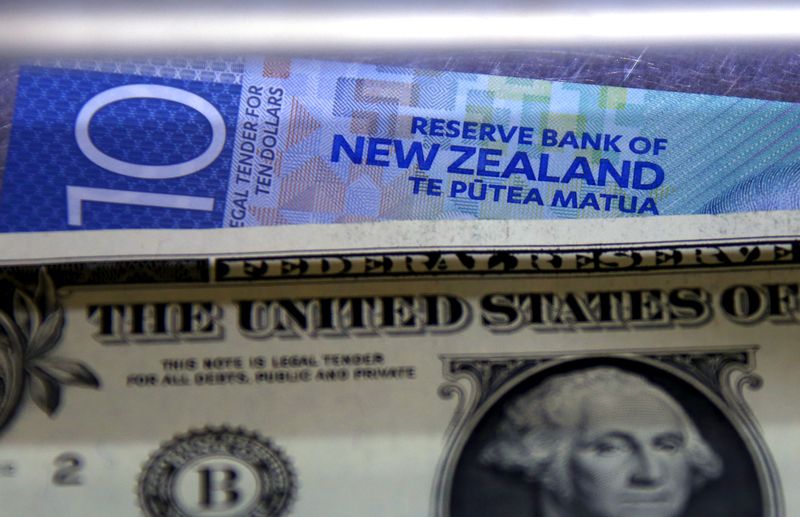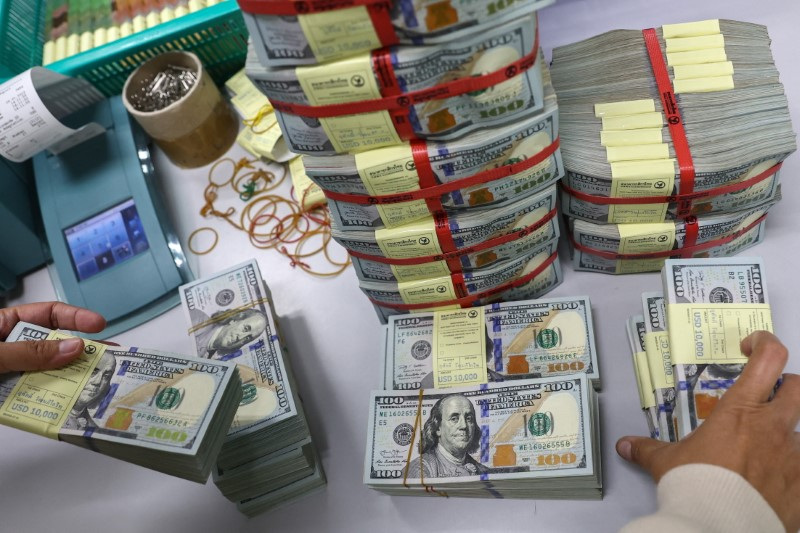By Harry Robertson and Rae Wee
LONDON/SINGAPORE (Reuters) -The U.S. dollar rose slightly on Wednesday after falling to its lowest in more than three months on hopes that the Federal Reserve will soon cut rates, while the euro slipped as data showed European inflation cooled in November.
Comments from Fed official Christopher Waller flagging a possible rate cut in the months ahead sent U.S. bond yields and the dollar sliding on Tuesday.
"(Waller's) relatively hawkish, historically speaking, so if his attitude is turning a little bit more dovish, it sort of says that perhaps a general consensus of the board members is that rates have peaked and maybe could even be cut next year," said Kyle Rodda, senior financial market analyst at Capital.com.
The dollar index, which tracks the currency against six peers, hit its lowest since early August at 102.46 in the Asian trading session.
It then bounced somewhat and was last up 0.18% at 102.8. The dollar was on track to fall 3.7% in November, its biggest monthly drop in a year.
"Essentially it's come off the back of the U.S. and global bond rally, in particular with the U.S. 10-year (Treasury note)," said Alvin Tan, head of Asia FX strategy at RBC Capital Markets.
The U.S. 10-year Treasury yield dropped 5 basis points (bps) on Tuesday and was down by the same amount again on Wednesday to 4.2898%, its lowest since mid-September.
Yields move inversely to prices, and lower bond yields make fixed income investments in a country look less attractive relative to peers, weighing on the local currency.
The euro briefly crossed $1.10 for the first time since August on Tuesday but pared gains and was last down 0.1% at $1.0984.
Inflation data from Germany, Europe's biggest economy, showed that price growth slowed to 2.3% year-on-year in November from 3% in October. Inflation in Spain also slowed sharply.
"On an intraday basis (the euro) has come off the high... but of course on the flip side U.S. bond yields are continuing to grind lower," said Tan. "There are two contrasting forces at play here."
The euro zone-wide inflation figure is due out on Thursday, before the Fed's preferred measure of U.S. inflation, the personal consumption expenditures index, or PCE.
New Zealand's dollar was last up 0.34% to $0.6157, after the Reserve Bank of New Zealand on Wednesday held interest rates but warned that further policy tightening might be needed.
The kiwi had surged more than 1% earlier in the session to a four-month high of $0.6207.

Japan's yen, which is particularly sensitive to U.S. bond yields, held on to recent gains on Wednesday. The dollar up 0.1% at 147.55 after earlier falling to a more-than-two-month low of 146.68 yen.
China's onshore yuan finished the domestic session at 7.1246 per dollar, the strongest closing price since June 16.
